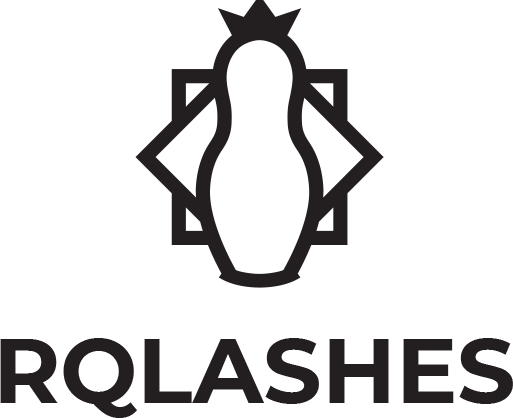Irritations and Allergies:
How To Tell Them Apart
How To Tell Them Apart

As a lash artist you are most likely aware about the fact that sometimes your clients (or even you yourself) may get allergic reactions to eyelash extension adhesive. Although, if a client experiences eye problems after your appointment it doesn't necessarily mean the reason is an allergic reaction. It might be just a simple irritation. But how to distinguish those two very different things when they look so similar? Educating yourself about the nature of these reactions will greatly help ensure your client's safety. Here are some basic principles that might assist you with that.
Allergies
An allergy is a hypersensitivity of a person's immune system to something ordinary that people generally don't have any problems with and encounter on a daily basis. When it comes to allergies to adhesives, usual symptoms are red puffy eyes and itchiness. They won't go away until stimulus is removed and tend to get worse with time. If you know somebody who has a peanut allergy, you might've noticed that every time they're exposed to peanuts their symptoms become more and more intense. It happens because our immune systems are constantly adapting to new conditions, building up antibodies to fight off the allergen. To put it simple, the longer you stay in contact with the allergen, the stronger your reaction to it will become. If a client had experienced allergic reactions to adhesives before, do NOT put lashes on them. It's too high of a risk for their health.
An allergy is a hypersensitivity of a person's immune system to something ordinary that people generally don't have any problems with and encounter on a daily basis. When it comes to allergies to adhesives, usual symptoms are red puffy eyes and itchiness. They won't go away until stimulus is removed and tend to get worse with time. If you know somebody who has a peanut allergy, you might've noticed that every time they're exposed to peanuts their symptoms become more and more intense. It happens because our immune systems are constantly adapting to new conditions, building up antibodies to fight off the allergen. To put it simple, the longer you stay in contact with the allergen, the stronger your reaction to it will become. If a client had experienced allergic reactions to adhesives before, do NOT put lashes on them. It's too high of a risk for their health.
Irritations
The trickiest thing about irritations is that it's extremely hard to distinguish them from allergies because they often cause the same symptoms. The main reason for irritations are fumes given off by the adhesive during solidifying or drying. Gas molecules of cyanoacrylate that leave the adhesive often cause eye puffiness as well as a red, itchy sclera. It sounds just like the allergy, but the main distinction is that irritations are typically short-lived: they fade away after approximately 24 hours and get better with time as opposed to the allergies. There's still an exception to this rule, though — seasonal allergies. If your client suffers from a seasonal allergy, lash extensions might make it worse since their eyes are already irritated and sensitive.
The trickiest thing about irritations is that it's extremely hard to distinguish them from allergies because they often cause the same symptoms. The main reason for irritations are fumes given off by the adhesive during solidifying or drying. Gas molecules of cyanoacrylate that leave the adhesive often cause eye puffiness as well as a red, itchy sclera. It sounds just like the allergy, but the main distinction is that irritations are typically short-lived: they fade away after approximately 24 hours and get better with time as opposed to the allergies. There's still an exception to this rule, though — seasonal allergies. If your client suffers from a seasonal allergy, lash extensions might make it worse since their eyes are already irritated and sensitive.
How to Treat an Allergic Reaction
What your client can do if they think they're experiencing an allergic reaction and not just a simple irritation is take an antihistamine medication. It will ease their symptoms until the lashes are removed. It's also a great way to check if it was an allergy after all. If the medication works, it means that yes, it was an allergic reaction indeed.
How to Limit Irritations
The best way to avoid irritations is to limit the amount of fumes you and your clients are exposed to. Use proper techniques and follow all the necessary safety procedures so your clients will stay healthy and safe!
What your client can do if they think they're experiencing an allergic reaction and not just a simple irritation is take an antihistamine medication. It will ease their symptoms until the lashes are removed. It's also a great way to check if it was an allergy after all. If the medication works, it means that yes, it was an allergic reaction indeed.
How to Limit Irritations
The best way to avoid irritations is to limit the amount of fumes you and your clients are exposed to. Use proper techniques and follow all the necessary safety procedures so your clients will stay healthy and safe!

What to do?
Note: Don't forget that when medical related issues are involved it's always best to seek professional advice and consult a doctor. Our article is just a simple guideline to help you distinguish and deal with irritations and allergies.
- First and most important rule every lash artist has to follow is to work in a well ventilated room. If your space is small, make sure to keep windows or even doors open or maybe getting a fan.
- If you know your client has sensitive eyes, use as little glue as possible. Not only it will limit adhesive fume exposal, it will also perfect your lashes, since you'll be able to achieve a more natural look. Two birds with one stone!
- Always make sure your client's eyes are closed during the procedure. Explain to them in great detail why they have to do so, be as transparent as possible. It's important they understand what exactly is happening and what are the reasons for this requirements.
Note: Don't forget that when medical related issues are involved it's always best to seek professional advice and consult a doctor. Our article is just a simple guideline to help you distinguish and deal with irritations and allergies.
RQL Newsletter
Subscribe to our email newsletter for useful tips and special deals
By clicking this button, you agree to the Terms of Use and Privacy Policy.
YOU MAY BE INTERESTED IN

